As cloud-based products become more commonplace, the demand for cloud engineers is increasing too. These specialists aren’t just in high demand—they’re also some of the best-compensated professionals in the tech industry. Entry-level salaries for cloud engineers rarely dip below six figures, and there’s tons of room for growth, with mid and senior-level positions abounding.
Want to become a cloud engineer? Then you’re in the right place. We’ve compiled this 11-step guide so that you’ll know what it takes to succeed as a cloud engineer.
What Does a Cloud Engineer Do?
A cloud engineer designs, implements, and maintains an organization’s cloud infrastructure. This is a huge industry, with end-user spending on public cloud service providers predicted to grow by 20% in 2023, reaching almost $600 billion. Cloud computing encompasses a range of technologies, but the principal concept is accessing data storage, tools, and other services via the internet, rather than on-site hardware.
How To Become a Cloud Engineer: An 11-Step Guide

With the number of cloud engineering jobs predicted to increase by 9% in the next decade, now is a great time to start your career journey. Here’s everything you need to know before you start.
-
Learn About the Industry and Get Familiar With the Basics
-
Meet the Educational Requirements (and Keep Learning)
-
Pick Up an Essential Programming Language (or Two)
-
Develop and Hone Your Skills
-
Build a Portfolio
-
Create a GitHub Profile
-
Consider a Certification
-
Your Network Is Your Net Worth
-
Find a Mentor
-
Pursue an Internship
-
Tailor Your Resume, Prepare for the Interview, Then Start Applying
Learn About the Industry and Get Familiar With the Basics
First things first, it’s good to be well-informed and up-to-date with the industry as a whole. Finding some popular blogs, podcasts, or online communities can be a good start. Researching the kind of roles available and creating some specific goals can also be useful. An introductory online course can also help you learn more about the basic principles of cloud computing and how the industry works.
Meet the Educational Requirements (and Keep Learning)
Once you’re a little more informed and ready to commit, it’s time to dive into your technical education.
Pick Up an Essential Programming Language (or Two)
Learning how to code is an important part of becoming a successful cloud engineer. Here are some of the most popular programming languages used by professionals in the cloud engineering industry:
Python
Python can handle many kinds of cloud computing tasks, but it’s also great for many other areas. It’s a useful (and transferable) skill for any programmer or software engineer to have.
Java
Java is qualified for almost any programming task and cloud computing is no exception. Its platform-independent nature makes it easy to transfer modular programs from one computer system to another.
Golang
Golang is an open-source programming language that’s supported by Google Cloud and is primarily used for cloud and network services.
Others
Other languages popular in the cloud computing industry include ASP.NET, PHP, and Ruby.
Develop and Hone Your Skills
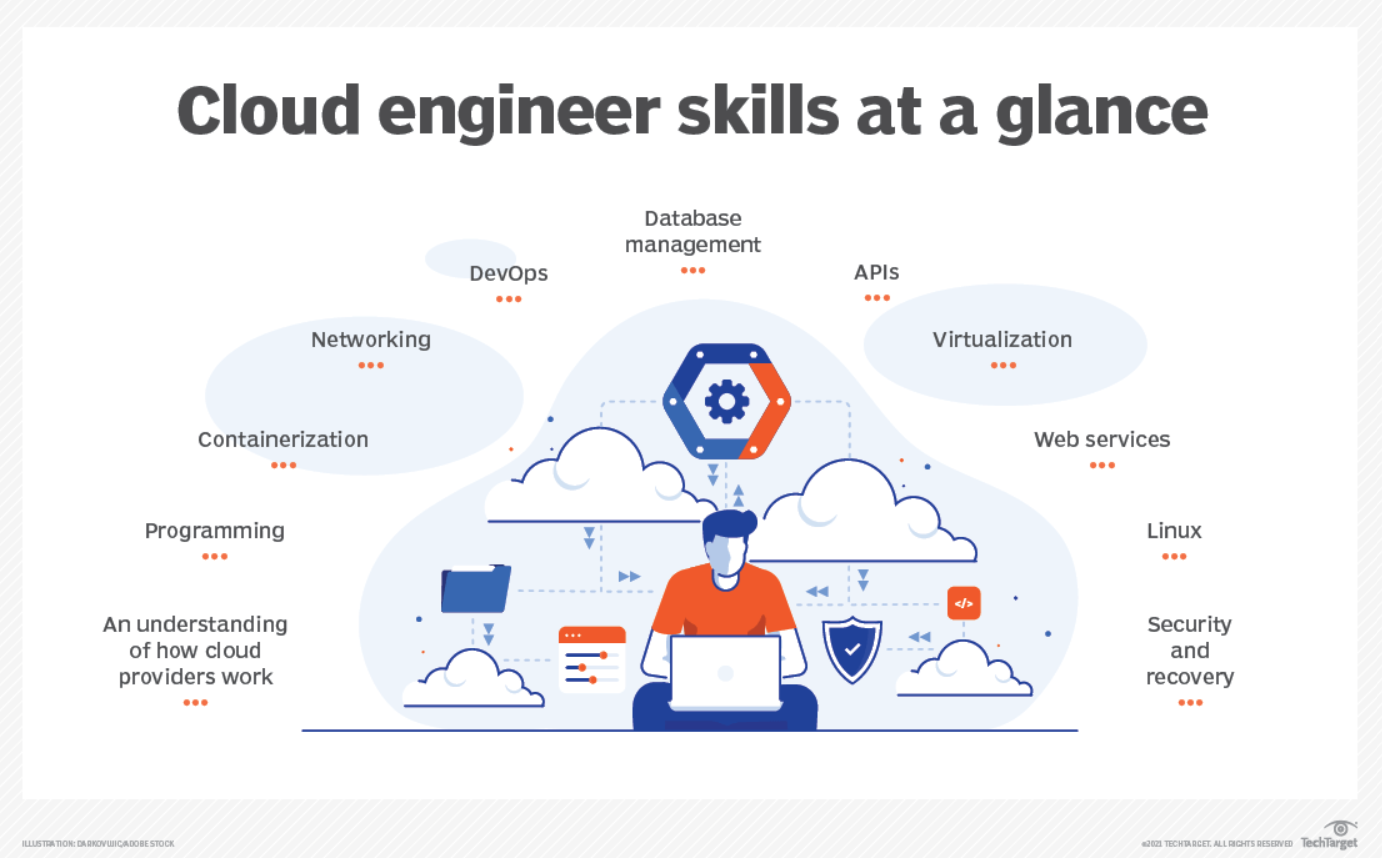
Making sure you have the technical skills and experience employers want is very important for cloud engineers. Companies will often search for experts in the particular platform they use, with the most widely-used example being AWS (Amazon Web Services).
Technical Skills
- Experience with industry tools and cloud technologies such as ElasticBeanstalk, CloudFront, ECS, VPCs, RDS, Lambda, and WAF
- Knowledge and experience working with major cloud environments like AWS, Microsoft Azure, IBM Bluemix, and Google Cloud Platform
- Programming skills (Python, Java, etc)
- Experience building CI/CD pipelines and cloud-based applications
- Knowledge of database architecture and the technical aspects of machine learning
Soft Skills
- Communication skills to collaborate across teams and drive initiatives forward
- Able to work independently while staying aligned with a shared vision
- Product-centric mindset for understanding business and customer needs
- Good organizational skills and work ethic
- Passion for your role and its goals
Build a Portfolio
Portfolio building is something to start thinking about as soon as you start your education. The more experience you get under your belt, the more advanced and impressive your projects will be by the time you start job searching.
Open-Source Projects
Open-source projects are a great way for beginners to gain real-world experience. You can find projects to contribute to all over the web—even big names like Google have open-source projects that you can work on.
Freelance Work
Freelance work can also be a good way to gain professional hands-on experience before you find a full-time role. Some freelance work will be out of your reach as a student, but sites like Upwork post jobs for all kinds of experience levels.
Volunteer Work
Cloud-based systems are essential for success in the modern world but there are still many people without proper access to them, or budgets too small to afford them. By making a profile on a site like donate:code and contributing to projects, you can gain valuable experience and help others at the same time.
Create a GitHub Profile
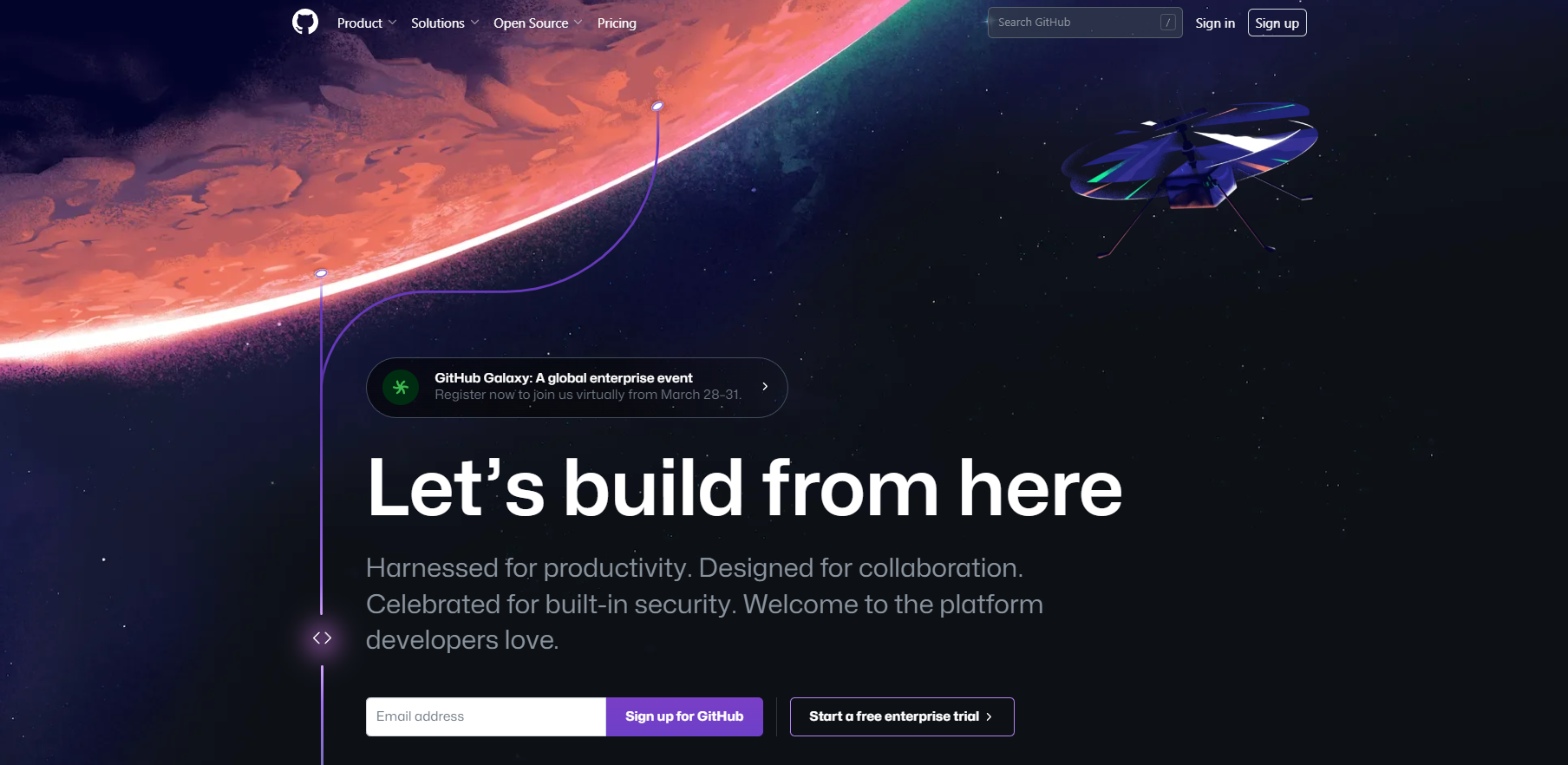
GitHub lets developers and programmers store, share, and collaborate on code. It’s also a popular way to create a programming portfolio—you can store all of your projects on GitHub and share this with potential employers.
Consider a Certification
Professional certifications are a great addition to your resume as a professional cloud developer. Some of the most valuable cloud computing certifications are provided by popular cloud solutions like Google Cloud, or AWS. Passing the exams for these certifications shows employers that you’re qualified to work with these cloud-based technologies.
Your Network Is Your Net Worth
As you study and gain experience in the field of cloud applications, one thing you should never forget is to make lasting connections with the people you meet. Here’s how to build your network:
Whether it’s an in-person or online relationship, connecting on LinkedIn is the best way to stay in touch with other cloud engineering professionals. All professionals know the value of building your network on LinkedIn and everyone is used to connecting with everyone they meet, so don’t be shy to do the same.
Online Communities
Online communities are perfect for beginners in any area, as they give you open access to like-minded people without any barriers involved. Anyone can join a discord server or a subreddit for cloud computing enthusiasts, and the relationships you develop there could even lead to work opportunities.
Conferences and Meetups
Nowadays, these can be either offline or online events. While meeting people in person may seem more valuable, participating in online events is a good option too.
Find a Mentor
Anyone open to answering your questions or looking through your work can be viewed as a mentor. You can find mentors at your workplace, your school, in online communities, or at conferences and meetups.
Pursue an Internship
Internships are an immensely valuable experience for beginners. They essentially give you a sneak peek into working life and the inner workings of an organization. You can search for internship opportunities on normal job boards, but there are also internship-specific sites like internships.com or wayup.com.
Tailor Your Resume, Prepare for the Interview, Then Start Applying
Job searches can take time, so it’s best to start as soon as you think you’re ready for a career in cloud-based solutions. Tailor your resume to the type of job you want, or create multiple with different specializations if you’re applying for different kinds of roles.
Creating personalized cover letters for each application is also essential because employers want to know that you’ve read their job post and researched their company. This shows that you’re serious.
Get To Know Other Software Engineering Students
Alexander Aboutanos
Software Development Consultant at Sogeti
Bryce Dunn
Associate Software Engineer at Egen
Jack Mayer
Software Engineer at Whitepages
Career Transition to Cloud Engineer: Where To Start
The path to becoming a cloud engineer is different for each individual—here are some of the common routes people take.
No Experience
For young people and new graduates, the path toward your first career is often fairly standard. You finish compulsory education, choose a college, vocational school, or online bootcamp relevant to your career ambitions, and then start job searching.
As long as you find an effective way to study and take part in open-source projects or internships to build experience, you’ll be able to find an entry-level role that’s happy to take you.
Related Career Transition
Transitioning from a related career in the tech industry such as software engineering, cybersecurity analytics, or data analytics can also be straightforward. You can study for your new career in cloud engineering by attending a part-time online bootcamp and using your existing network to learn about new job opportunities.
Unrelated Career Transition
For those making a transition from a completely unrelated career, it’s still possible to utilize your prior experience. Cloud computing skills are needed in almost all areas and employers like to hire those who have a deep understanding of their industry.
As for education, you can study as you work by enrolling in part-time online bootcamps that specialize in helping people into new career paths.
Cloud Engineer Salaries
Here’s what you can expect to make:
Entry-Level Cloud Engineer
Demand for cloud engineers is high right now, so even a junior entering the first year of their cloud engineering career can earn an impressive salary. Glassdoor data shows an average salary of $131,029 for engineers with 0-1 year of experience.
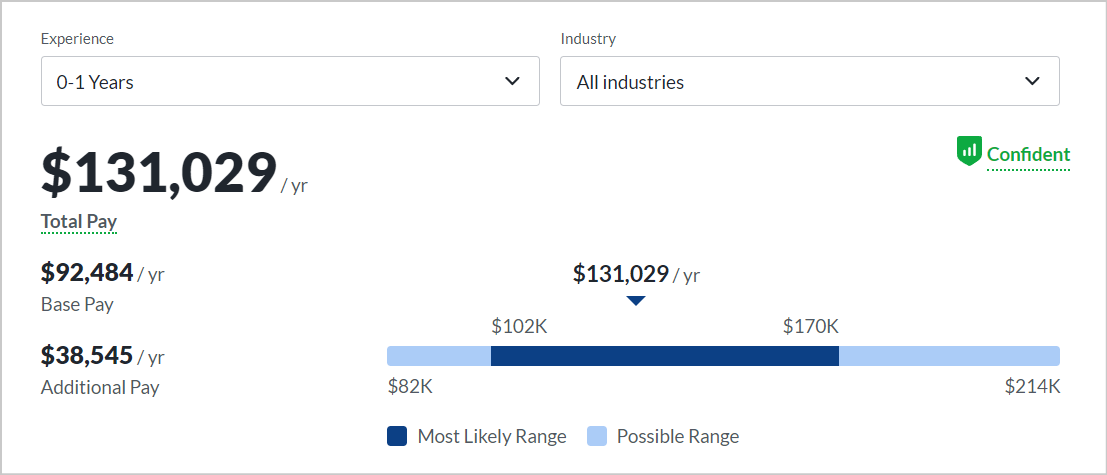
Mid-Level Cloud Engineer
For engineers with 4-6 years of experience, $161,317 is the median salary.
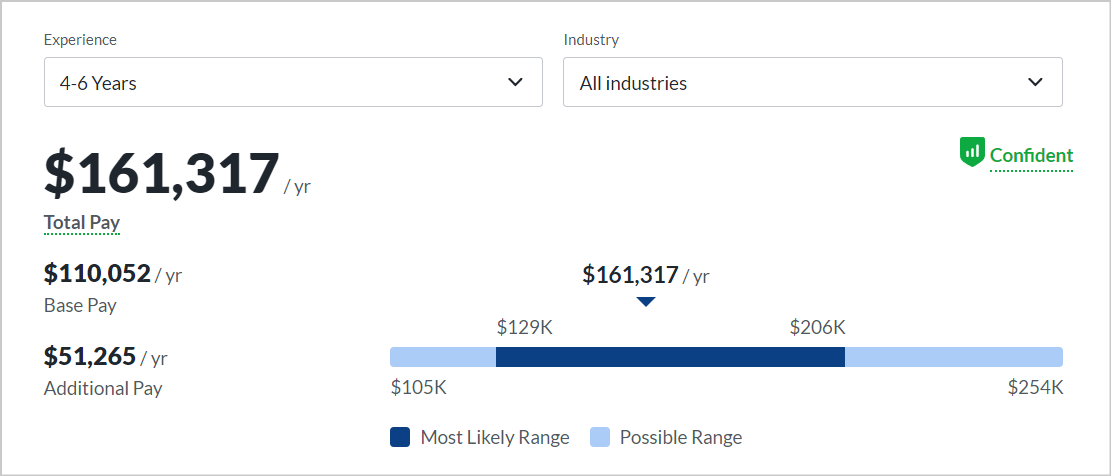
Senior Cloud Engineer
A senior cloud developer can earn anything from $130,000-317,000 per year.
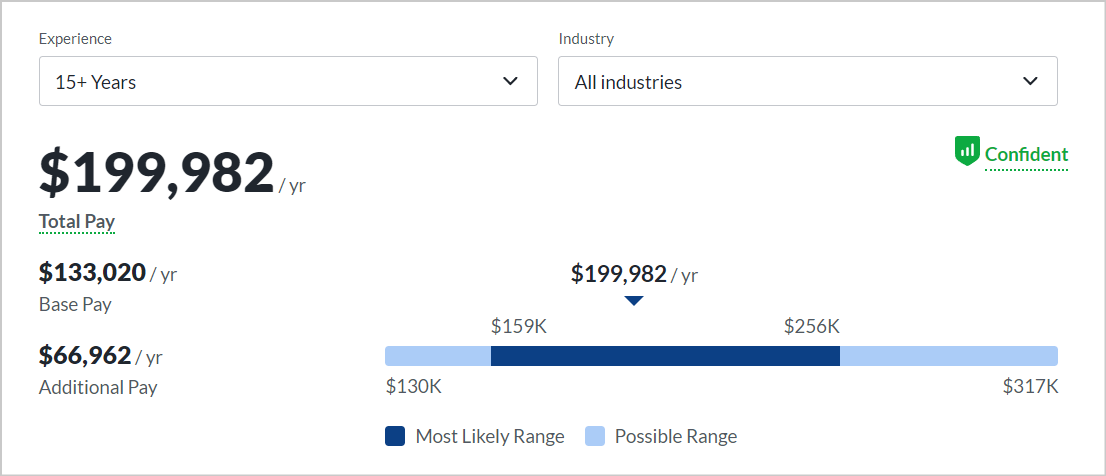
Resources To Find Cloud Engineering Jobs
Here are some places where you can find cloud engineering jobs:
Job Boards
The usual culprits—Indeed, Glassdoor, and Monster—are all great places to find cloud engineering roles. A quick search will show hundreds of postings at any time. You can also frequent tech-specific boards like Dice for more focused searches.
LinkedIn is loved by recruiters who are looking for impressive candidates to connect with. Make sure your profile is fully complete and up-to-date, with a professionally-taken photograph as well. You can also browse jobs yourself on LinkedIn, and participate in a range of relevant communities.
Network
Networking is undoubtedly the best way to land a job. Around 70% of people are hired at a company where they have a connection. To do this, you’ll need to find ways to meet cloud computing specialists, exchange contact info, and engage in activities that show your value as a professional.
Slack Communities
Slack communities are often a little more professional than Discord or Reddit communities, making them the perfect place to hear about industry openings. All companies have employee referral systems, so getting to know other professional cloud engineers can help you find a job.
How To Become a Cloud Engineer FAQs
We’ve got the answers to your most frequently asked questions:
Is Cloud Engineering Stressful?
Workloads and deadlines vary by company, but there is nothing inherently stressful about a career in cloud engineering. Once you’re educated and experienced, you’ll feel very comfortable with your day-to-day tasks.
Are Cloud Engineering Jobs Hard To Get?
Cloud engineers are in high demand and organizations in nearly every industry need them. You’ll still have to put in a lot of work to equip yourself with the cloud engineer skills and experience you need but once you’re there, plenty of job opportunities will be waiting for you.
Can You Become a Cloud Engineer Without a Degree?
If you build up the right skills and find a way to gain hands-on experience, it’s possible to become a cloud engineer without a degree. Other forms of schooling, such as online courses and bootcamps are becoming more popular in this technical field.
Which Cloud Certification Is the Most Valuable?
Both AWS and Google Cloud certifications are extremely valuable for engineers since these are the most widely-used cloud providers. AWS in particular is used by an extensive list of top-paying companies such as BMW, Coca-Cola, Epic Games, Netflix, and more.
Since you’re here…
No one wakes up knowing how to code – they learn how to code. Tens of thousands of students have successfully learned with our courses, like our Software Engineering Bootcamp. If you’re a total newbie, our Software Engineering Career Track Prep Course will be a perfect fit. Let’s do this!






![How to Become a Front-End Developer in 2023 [Career Guide]](https://www.springboard.com/blog/wp-content/uploads/2023/02/how-to-become-a-front-end-developer-in-2023-career-guide.jpg)